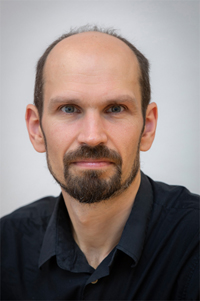Research
I am a computer scientist working specifically in the fields of
computational / theoretical neuroscience,
novel brain-inspired computing paradigms, and
neural networks.
My research focuses on
models for computation and learning in spiking neural networks. The aim of my research is to better understand the organization of computation and learning in nervous systems, as well as to apply such paradigms to artificial computing devices.
Computation and learning in biological neuronal systems:
Biological nervous systems such as the human brain are incredibly powerful computing systems. To understand the processes that give rise to their unmatched cognitive and adaptive capabilities is one the central questions of modern science. I have contributed to the theoretical analysis of computation and learning in biological neuronal systems. In particular I am interested in how local synaptic plasticity can give rise to system-level learning, for example through unsupervised or reward-based learning.
Relevant projects:- HBP Human Brain Project (EU Flagship project)
- Brain-i-Nets Novel Brain-Inspired Learning Paradigms for Large-Scale Neuronal Networks (Project coordinator; funded by the EU, FET-Open)
Recent publications (see my
Publications page for a full list):
- [35] D. Kappel, S. Habenschuss, R. Legenstein, and W. Maass. Network plasticity as Bayesian inference. PLOS Computational Biology, 11(11):e1004485, 2015. (Journal link to the PDF)
- [32] R. Legenstein and W. Maass. Ensembles of spiking neurons with noise support optimal probabilistic inference in a dynamically changing environment. PLOS Computational Biology, 10(10):e1003859, 2014. (Journal link to the PDF)
- [29] G. M. Hoerzer, R. Legenstein, and Wolfgang Maass. Emergence of complex computational structures from chaotic neural networks through reward-modulated Hebbian learning. Cerebral Cortex, 24:677-690, 2014. (PDF). (Supplementary material PDF)
- [28] R. Legenstein and W. Maass. Branch-specific plasticity enables self-organization of nonlinear computation in single neurons. The Journal of Neuroscience, 31(30):10787-10802, 2011. (PDF). (Commentary by R. P. Costa and P. J. Sjöström in Frontiers in Synaptic Neuroscience PDF)
Novel brain-inspired computing paradigms:
Recently, interest in novel non-von Neumann computing paradigms has dramatically increased both in academia and industry. It has become quite clear that the capabilities of standard computing architectures are severely limited and have to be amended by novel architectures. In addition, alternative architectures are necessary in order to harness the full potential of novel nano scale circuit elements such as memristors. In my research I focus on brain-inspired spiking neural network architectures. I have developed methods for unsupervised learning in spiking neural networks with memristive synapses. The viability of these approaches was acertained with the use of real memristive hardware in cooperation with hardware experts.
Relevant projects:- PNEUMA Plasticity in NEUral Memrisitve Architectures (Project leader for TUG; chist-era project)
Recent publications (see my
Publications page for a full list):
- [40] A. Serb, J. Bill, A. Khiat, R. Berdan, R. Legenstein, and T. Prodromakis. Unsupervised learning in probabilistic neural networks with multi-state metal-oxide memristive synapses. Nature Communications, 2016. in press.
- [36] R. Legenstein. Nanoscale connections for brain-like circuits. Nature, 521:37-38, 2015. (PDF).
- [33] J. Bill and R. Legenstein. A compound memristive synapse model for statistical learning through STDP in spiking neural networks. Frontiers in Neurosciense, 8(214):1-18, 2014. (Journal link to PDF)
- [30] G. Indiveri, B. Linares-Barranco, R. Legenstein, G. Deligeorgis, and T. Prodromakis. Integration of nanoscale memristor synapses in neuromorphic computing architectures. Nanotechnology, 24:384010, 2014. (PDF).
